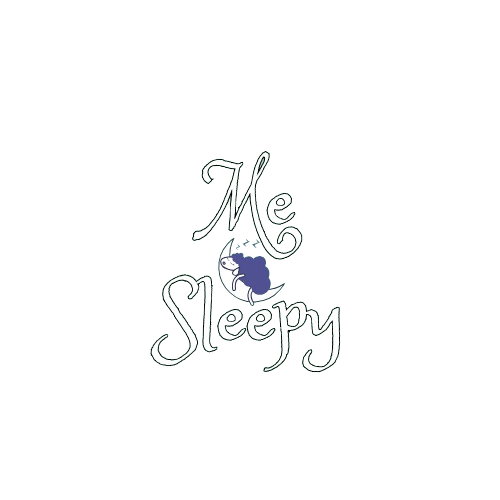The Link Between Insomnia and Hazardous Drinking
Insomnia and Alcohol Misuse: A Significant Overlap
Insomnia and hazardous drinking are intricately connected, with research indicating a substantial overlap between the two. Estimates suggest that a significant portion of individuals struggling with sleep issues also engage in alcohol misuse. This interconnection is not merely coincidental; it highlights a complex relationship where insomnia and alcohol misuse often coexist. The prevalence of this overlap underscores the need for a deeper understanding of how these two conditions influence each other.
A Bidirectional Relationship
The relationship between insomnia and hazardous drinking is bidirectional, meaning that each condition can potentially lead to the other. Insomnia can drive individuals to consume alcohol as a means of self-medication, seeking relief from sleeplessness. Conversely, excessive alcohol consumption can disrupt sleep patterns, leading to insomnia. This cyclical interaction creates a challenging scenario where both conditions perpetuate each other, complicating efforts to address either issue in isolation.
Role of Stress and Depression in Insomnia and Drinking
Stress as a Mediator: Insomnia Leading to Drinking
Stress plays a pivotal role in the interplay between insomnia and hazardous drinking. Insomnia often leads individuals to drink as a coping mechanism to alleviate stress. The pressure of sleepless nights can heighten stress levels, prompting individuals to turn to alcohol for temporary relief. This pathway highlights the importance of addressing stress as a potential mediator in the relationship between insomnia and drinking. By targeting stress, it may be possible to reduce the likelihood of insomnia leading to hazardous drinking.
Depression as a Mediator: Drinking Leading to Insomnia
On the flip side, depression emerges as a key factor when examining how drinking can lead to insomnia. Alcohol consumption, particularly in excessive amounts, can exacerbate feelings of depression. This, in turn, disrupts sleep patterns, leading to insomnia. Understanding the role of depression as a mediator in this context is crucial for developing effective treatment strategies. By addressing depression, it may be possible to mitigate the impact of drinking on sleep disturbances.
In conclusion, the intricate relationship between insomnia and hazardous drinking is influenced by stress and depression. Recognizing these mediating factors is essential for developing comprehensive treatment approaches that address the root causes of both conditions. By targeting stress and depression, healthcare professionals can better support individuals struggling with the dual challenges of insomnia and hazardous drinking.
Impact of Insomnia and Hazardous Drinking on Life and Health
Consequences on Daily Life and Productivity
Insomnia and hazardous drinking can wreak havoc on daily life, leading to a cascade of negative outcomes. Both conditions are notorious for causing missed workdays and a noticeable dip in productivity. Imagine trying to focus on a task after a night of tossing and turning or dealing with the aftereffects of a heavy drinking session. It’s no surprise that these issues can lead to strained professional relationships and even job loss in severe cases. The ripple effect of these conditions extends beyond the workplace, impacting personal relationships and overall quality of life.
Health Risks and Alcohol Use Disorder (AUD)
The health implications of insomnia and hazardous drinking are equally concerning. Chronic insomnia is linked to an increased risk of several serious health conditions, including cardiovascular disease and Alzheimer’s. On the other hand, Alcohol Use Disorder (AUD) is characterized by a persistent pattern of drinking despite facing negative consequences, such as interpersonal conflicts, health issues, or legal problems. The combination of insomnia and AUD can create a vicious cycle, exacerbating health risks and making recovery more challenging. Addressing these conditions is crucial for improving both mental and physical health outcomes.
Research and Treatment Approaches for Insomnia and Alcohol Use
Exploring Digital Interventions
In the quest to find effective treatments, researchers are turning to innovative solutions like digital interventions. One promising approach is SHUTi (Sleep Healthy Using the Internet), a digital version of cognitive behavioral therapy for insomnia. This intervention has shown promise in reducing insomnia symptoms among heavy drinkers, even without specifically targeting alcohol use. By leveraging technology, SHUTi offers a convenient and accessible way for individuals to address their sleep issues, potentially reducing their reliance on alcohol as a coping mechanism.
Tracing Pathways for Improved Outcomes
Ongoing research is focused on unraveling the complex pathways that link insomnia, stress, and depression over time. By collecting data over a 12-month period, researchers aim to gain a deeper understanding of how these factors interact and influence each other. This knowledge could pave the way for more targeted and effective treatment strategies. By identifying the specific pathways that contribute to the relationship between insomnia and hazardous drinking, healthcare professionals can develop interventions that address the root causes, ultimately improving treatment outcomes for individuals struggling with these dual challenges.
For more insights into sleep disorders and potential solutions, you might find our Sleep Disorder Blog helpful. Additionally, if you’re looking for ways to enhance your sleep environment, consider exploring our Sleep Sound Playlists for a more restful night’s sleep.
Source: https://www.sciencedaily.com/releases/2025/04/250414124657.htm



